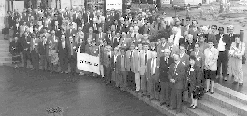
Number 68 CODATA / NEWSLETTER
SEPTEMBER 1994
HIGHLIGHTS
CODATA '94 Chambéry Conference - A Great Success
CODATA's Biennial International Conference sandwiched between the Stragetic Planning Meeting and the General Assembly in September was a gala and productive event. About 292 participants were involved in the four-days of multidisciplinary plenary lectures, oral papers, poster sessions, workshops, receptions, social, and touristic functions which took place in the Manège and nearby buildings and conference halls in the charming setting of Chambéry, Savoy, France. 138 of the participants were from 30 other countries of the world and the U.S. delegation involved 18 scientists. The French Minister of the Environment, M. Michel Barnier, discussed the transversal science, Environment, and emphasized the need for consideration of its social dimension.
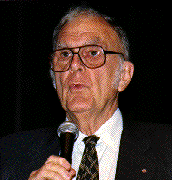
Dr. F. Sherwood Rowland
The World Cultural Council presented the 1994 "ALBERT EINSTEIN" World Award of Science to Dr. F. Sherwood Rowland, Donald Bren Professor of Chemistry, at the University of California, Irvine, U.S.A. The Official Awarding Ceremony took place during the 24th International CODATA Conference. This Award was created for recognition of achievement and as an incentive to scientific and technological research and development. It takes into special consideration research that has brought true benefit and well being to mankind.
Dr. Rowland's discovery that chlorofluorocarbons (CFC's) deplete stratospheric ozone presented hard evidence that chemical pollutants in the atmosphere can induce changes in the environment on a global scale. His discovery came about through basic research in which he established that the major atmospheric destruction process for molecules such as fluorocarbon-11 and fluorocarbon-12 is photolytic decomposition in the high stratosphere by ultraviolet solar radiation.
Dr. Rowland was born in Delaware, Ohio, U.S.A., in 1927. He received the degree of M.S. in 1951 from the University of Chicago. A member of the U.S. National Academy of Sciences, as well as fellow and past-President of the American Association for the Advancement of Science, he has actively participated on numerous panels for the global environment, and has also received medals, fellowships, awards, and prizes from different world organizations. He has written more than 300 scientific publications on atmospheric chemistry, radiochemistry, and chemical kinetics.
The Council also presented the 1994 "JOSE VASCONCELOS" World Award of Education to Prof. Peter Joseph O'Halloran, Director of the Australian International Centre for Mathematics Enrichment, during the opening session.
This Award has been established in recognition of those who have the all important task of teaching, underlying basis for our present civilization. Prof. O'Halloran was selected for his most important contribution the Australian Mathematics Competition now the largest in the world. His initiatives have enhanced the acceptance in educational circles of mathematical challenges and competitions in stimulating the learning of school mathematics. He has set up a supportive network for nearly 700 teachers and mathematicians from over 90 countries. This support includes the exchange of information and contacts, the popularization of mathematics generally, and the recognition of educators.
Mme. Phyllis S. Glaeser Honored
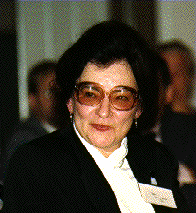
To celebrate "20 Years of Devoted Service to CODATA" the Executive Director, Mme. Glaeser was awarded a beautiful leaded crystal vase inscribed with the ICSU/CODATA headquartes the Hotel de Noaille-on bd. de Montmorency (Auteuil) Paris as seen from the garden. The engraver: Tracey Sheppard of Winchester, England
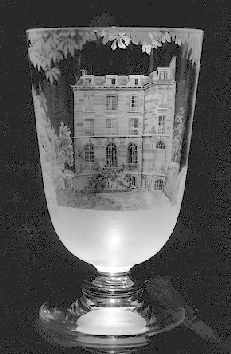
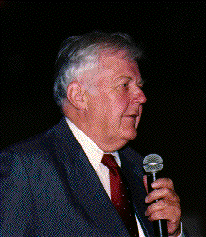
James Crease
The vase from her many friends was awarded by James Crease, CODATA's Treasurer.
Species 2000 - World (Biological) Species Enumeration
CODATA and the International Union of Biological Sciences (IUBS) have joined forces to tackle the problem of access to taxonomic data. This major initiative, Species 2000, was adopted by CODATA and IUBS at their General Assemblies in September. Species 2000 has the objective of enumerating by the year 2000 all known species of plants, animals and microbes on earth, as the baseline dataset for studies of global biodiversity. It is proposed that existing global master species databases for many groups of organisms, plus additional systems, be developed rapidly until all groups of organisms are covered. Implementation of Species 2000 will involve:
It is incumbent upon organizations such as CODATA and IUBS to catalyze the development of comprehensive species databases by taxonomic experts in each subdiscipline of biology and to assist biological database producers and users in gaining access to accurate taxonomic data.
For further information about Species 2000, contact -
CODATA Long Range Planning Meeting
A meeting to develop a strategic plan for CODATA for the next decade was held in Chambéry, France, on September 16-17, 1994, just before the start of the 14th International CODATA Conference. The participants totaled about 30 and included several invited guests in addition to the CODATA Officers and Executive Committee. The planning meeting was organized by Dr. David R. Lide, a former President of CODATA.
One of the objectives of the meeting was to develop a mission statement for CODATA which would express the vision of the organization as it approaches the 21st century. Although the precise wording is still under discussion, the statement will emphasize the goal of CODATA to become the central focus within the ICSU family, and, more generally, in the international scientific community, in matters of the compilation, management, quality control, and dissemination of numerical data from all scientific disciplines. Emphasis will be given to linking data experts with scientists from the various disciplines in order to facilitate the application of modern information technology to all aspects of data management. In this way, CODATA will attempt to enhance the accessibility and the intelligent use of data in the conduct of science and technology.
The optimum path to realize the goals presented in the mission statement occupied a major part of the discussion at the planning meeting. Rather than attempting to create a list of specific projects to be undertaken, the group outlined a broad strategy to guide the Executive Committee and General Assembly in making its year to year decisions. The five elements of this strategy are:
A report of the Long Range Planning Meeting is now being prepared for discussion by the Executive Committee at its next meeting, followed by distribution to all Members and other interested parties.
--David R. Lide, Jr.
General Assembly Elects J.-E. Dubois to CODATA Presidency
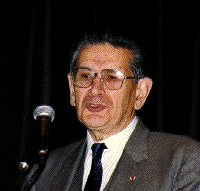
CODATA's General Assembly meeting at Chambéry September 23 and 24 elected a new slate of officers and Executive Committee members. Some positions were contested, others were not.
Officers:
CODATA Commissions, Task and Working groups, 1994-96
After discussion of reviews and referee reports the General Assembly voted and the Officers funded the following Task Groups, Working Groups, and Commissions:
The 15th International CODATA Conference at Tsukuba
The Biennial Conference will be held on September 29 - October 3, 1996 at the Auditorium of the Agency of Industrial Science and Technology, Tsukuba Science City in Japan. Our conference site is located in the central part of the city, surrounded by 9 subsidiary research organizations of the Agency.
The main theme of the conference is focused on the following four subjects: (1) Computer Science and Networks, (2) Environment and Material Data, (3) Environment and Bio-Medical Science Data, and (4) Basic Science and Technology Data.
Tsukuba Science City is located about 50 km to the north-east of Tokyo and about 40 km from Tokyo/Narita International Airport. It covers 28,560 ha and one-tenth of its area is occupied by research and educational institutions. The city was planned early in the 1960's. All of the 47 national research and educational institutes have moved from other locations and others are recently organized. Nearly 210 private R&D institutions have been established or are in the planning stage.
Daily Pre-Meeting technical tours to Tokyo will include visits to
The meetings are being organized by the 15th International CODATA Conference Organization Committee and sponsored by the Society of Information and Knowledge, the Science Council of Japan, the Agency of Industrial Science and Technology, the Japan CODATA National Committee, and the Foundation for Advancement of International Science. The General Assembly will take place in the two subsequent days.
9th Int'l. Symposium : Computer Science for Environment Protection
This conference to be held in Berlin, Germany, Sept. 27-29, 1995, is being organized by the Gesellschaft für Informatik e.V., GI Technical Committee 4.6 "Computer Science for Environment Protection," in cooperation with (ICSU)/CODATA, and other organizations.
The aims pursue promotion of innovative methods and techniques in environmental research and protection and intensification of the dialogue among participants from science, industry, and administration with special attention to space and time related aspects.
Featured are real world representations, fuzzy logic, 3- and 4-dimensional visualization phenomena, multimedia, global, regional, and local analyses and atlases. The conference languages are English and German. This is a conference in the field of computer science. Special emphasis of advanced methods, techniques, tools in this field is to be expected in contributions. Pre-conference workshops and tutorials will give special attention to selected topics in this field. A special exhibition will be presented by companies, research institutions, etc.
Long abstracts (2-3 pages) are to be submitted in 5 copies by November 28, 1994 to FGU BERLIN, Kleiststraße, 23-26, D-10787 Berlin, Germany. Further information can be obtained from Katja Strzelczyk at Fortibildungszentrum Gesundheitsund Umweltschutz, at the above address.
Miscellany
An indexed, cross-referenced, and carefully classified update on the 1989 Directory covering China, Japan and Korea to include the extensive data activity not only in these three countries but expanded to include China (99 entries), Japan (143 entries), Korea (28 entries), as well as Taiwan (29 entries), Thailand (56 entries), and The Philippines (7 entries). This 204 page second volume in CODATA's Monograph Series softbound book is published by CODATA and may be purchased either from the CODATA Secretariat (Paris) or the Ann Arbor, Michigan (USA) "outpost." (Both addresses are on page six of this Newsletter. The price (postage prepaid) is only $33 [US] or the equivalent in French francs.
Additional information on this subject is available in Database Developments in Asian-Oceanic Countries, softbound (1994, 208 pp., $33 [US] prepaid) or Data Sources in Asian-Oceanic Countries (1994, 318 pp., softbound, $39 [US], hardbound $74 [US] both prepaid).
Reminder: For the benefit of those who were unable to attend as well as those requiring a summary of the approximateley 280 technical presentations, the Proceedings of the Chambéry Conference will be published both as an integral volume and four partial volumes, sharply focused on particular aspects, e.g., materials, environment, etc.
1995
March 6-7 CODATA Executive Committee.
Paris, France
March 8-9 Working Group on Data Access.
Paris, France
1996
Sept. 29- International CODATA Conference.
Oct. 3 Tsukuba, Japan
Oct. 4-5 CODATA General Assembly.
Tsukuba, Japan
CODATA Task Group on the Survey of
Data Sources in Oceanic Countries.
Japan
Obituaries
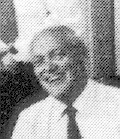
Borivoj Keil, former Professor at the Pasteur Institute , died of a heart attack in his mountain home in Southern France on September 29th, 1994 at the age of 73.
Professor Keil had served as the founding Chairman of the CODATA Task Group on Coordination of Protein Sequence Data Banks (1984-1990) and more recently as a member of the CODATA Nominating Committee (1990-1994).
In early 1960 we happened to share an office and laboratory at the University of California in Berkeley (working with Prof. Heinz Fraenkel-Conrat). Boja had come there as a visiting researcher from Czechoslovakia, already reputed to be a famous protein chemist known by having shown the sequence homology between trypsin and chymotrypsin and his fancy vertical paper electrophoresis. We climbed up the hill toward Grizzly Peak, watched sunsets over the Golden Gate Bridge and discussed or dreamed about science. It is a most sweet and beautiful memory. He later left Czechoslovakia by train - Munich - Paris - Marseilles in the spring of 1968. He worked with the French protein chemist, Prof. P. Desnuell at Marseilles and went on to become head of the Protein Chemistry Laboratory at the Pasteur Institute. He devoted his life's work to proteinases; clostripain and colagenase. He claimed that the first protein database had been compiled by him in 1958 and I also claimed the same credit but in a Japanese journal, 1958. When the late Professor Kotani asked me to work on a Protein Database in 1983, I immediately wrote three letters including one to Professor Keil. In the spring of 1984 in Paris, he and Professor Kotani with Dr. Arthur Lesk, Dr. Agnes Henschen-Edman and myself spent a few days at the Pasteur Institute which resulted in the Task Group on Protein Data Bank Coordination. We produced a Directory of Protein Sequence Databases, a format for standardized interchange and we encouraged new databases (MIPS and JIPID). As chairman, Professor Keil carried out the most fruitful work in Biology within CODATA. He summarized this work himself in an article in Enzymology, 183, 50 (1990). He also produced a unique database of protease specificity, LYSIS (Prot. Seq. Data Anal. 1, 13, 1987). The Task Group was transformed into the present Task Group on Biological Macromolecules which covers almost all the molecular biological databases. His extremely gentle and humorous demeanor in the chairmanship made it possible to coordinate and integrate these active but complicated activities. He was a member of the Enzyme Nomenclature Committee of the International Union of Biochemistry for many years and served in several Unesco activities.
He liked camping and mountain climbing and enjoyed his vacations in Corsica. Where he had once broken his leg and had suffered from heart trouble - but had recovered from both after operations he recently rebuilt a shepherd's house as his second home. He passed away on 29th September but still lives vividly in our hearts.
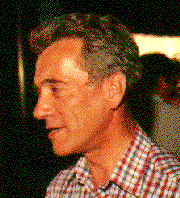
Professor Tomasz Plebanski, former Vice-President of CODATA, died in Warsaw on September 20 at the age of 64. His co-worker, Dr. Anna Michalik, writes about his career and his friend, W. Z. Wnukowski, speaks of the man:
Born in Warsaw, he completed his studies at the Faculty of Mathematics and Natural Sciences in Poznan in 1952 after which he worked on the purification of the first Polish-produced antibiotics at the Institute of Pharmaceutics. He was a Ph.D. student in Physical Chemistry at Warsaw University where he worked on cryometric methods of measuring the purity of substances under the direction of Prof. W. Swietoslawski and obtained his Ph.D. in 1960 for cryometric methods using a new kind of dilatometric cryometer. In 1961 he won first prize in an IUPAC international competition on precision methods for measuring the purity of substances. He served in the National Bureau of Standards, was elected an honorary member of the Commission on Measurements and Standards of IUPAC. In the (Polish) National Office of Standards he organized a Department of Metrology of Physical Chemistry which employed 55 people. In 1960, Professor Plebanski, with several Polish Institutes, committees of the Polish Academy of Sciences, and the Metrological Institutes of seven countries, established there an organized system of standard reference materials. Professor Plebanski became director of the Central Institute for Research and Development of Standard Reference Materials, WZORMA, in 1978. In the 1980's, WZORMAT produced 260 types of standards for Polish and international use. He created a reference system for all physical and chemical data on the properties of substances and materials. This idea came to fruition in 1984 when the National Center for Reference Data and the National Committee on Data for Science and Technology were created. He served this National Committee as V.P. from 1978-1984 and closely collaborated with CODATA.
At the dissolution of WZORMAT in 1991 due to the general difficult economic situation in Poland, he took an early retirement. For six months he was Advisor to the Vice Chairman of the Polish Committee on Standards, Measurement and Quality. He remained active in national and international organizations such as the International Bureau of Weights and Measures where he continued to work on soil standards and alloys in cooperation with NIST (formerly NBS).
Throughout his life he published eight papers and 200 reports on research. He was an unquestionable authority in the field of metrology and the breadth of his thought guarantees that aims defined by him will continue to be pursued. All the more so, in that actions undertaken recently by international metrological groups which aim to introduce issues of chemical analysis into metrology, definitely confirm the soundness of research directions proposed by Professor Plebanski 30 years ago. We also observe a growing role of the importance of standard materials especially in the systems of quality control now being developed in laboratories which build on very innovative topics studied by Professor Plebanski in the 60's.
He was a man of extremely high intelligence and broad horizons yet brought animation and spirit to all who came in contact with him and his wonderful sense of humor. He was extremely sensitive to people, and often helped the ill or those in difficulty. He helped many with political difficulties.
--Anna Michalik and W. Z. Wnukowski